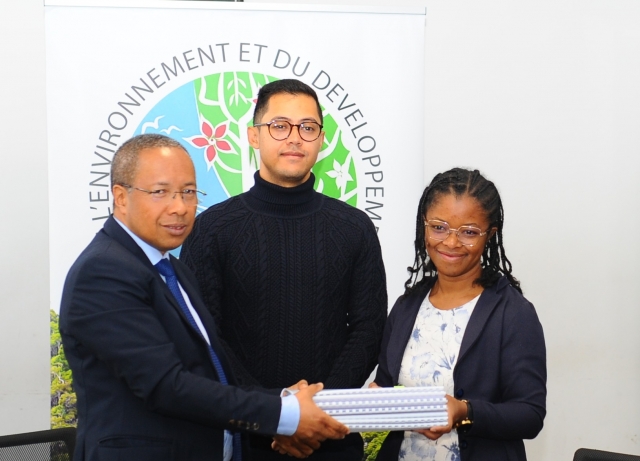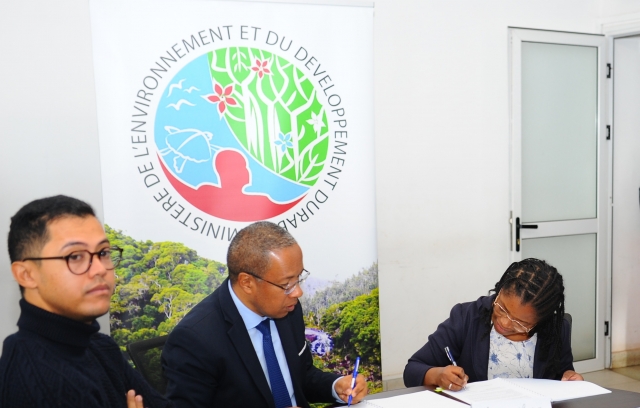
After twenty years of tireless efforts, Madagasikara Voakajy (MV) has reached a historic milestone: the official signing of the delegation contract for the management of seven protected areas in the Alaotra Mangoro region, covering a total surface of 31,006 hectares. The ceremony took place in Antananarivo on August 19, 2025.
These protected areas, Mangabe-Ranomena Sahasarotra, Mahialambo, Ampanangandehibe Behasina, Analalava, Analabe-Betanatanana, Ambatofotsy, and Ampotaka are the result of a long process of creation and development led by MV since its founding. From now on, the organization is recognized as the legal delegate, reinforcing its mission to halt the decline of threatened species while working hand in hand with local communities.
The ceremony, chaired by the Minister of Environment and Sustainable Development, Max Andonirina Fontaine, brought together key conservation stakeholders in Madagascar. The contract was signed by the Director General of Environmental Governance, Rinah Razafindrabe, and MV’s Executive Director, Julie Hanta Razafimanahaka.
For MV, this signature represents more than just legal recognition. It embodies the perseverance and commitment of two decades of work alongside communities to safeguard Madagascar’s biodiversity.
Beyond its legal scope, this contract stands out for its innovative approach that links conservation with social development. Local communities, long-standing partners of MV, are placed at the heart of governance, ensuring sustainable and equitable management of natural resources.
This event also marks progress for the country as a whole: 16 protected area managers saw their mandates officially renewed after seven years of waiting. This long-awaited moment symbolizes the resilience and determination of conservation actors who remained steadfast despite the lack of official recognition since 2018.
For donors and partners, this signature serves as a guarantee of the legitimacy and sustainability of MV’s actions. It also opens a new chapter of collaboration to preserve Madagascar’s exceptional biodiversity for the benefit of future generations.




